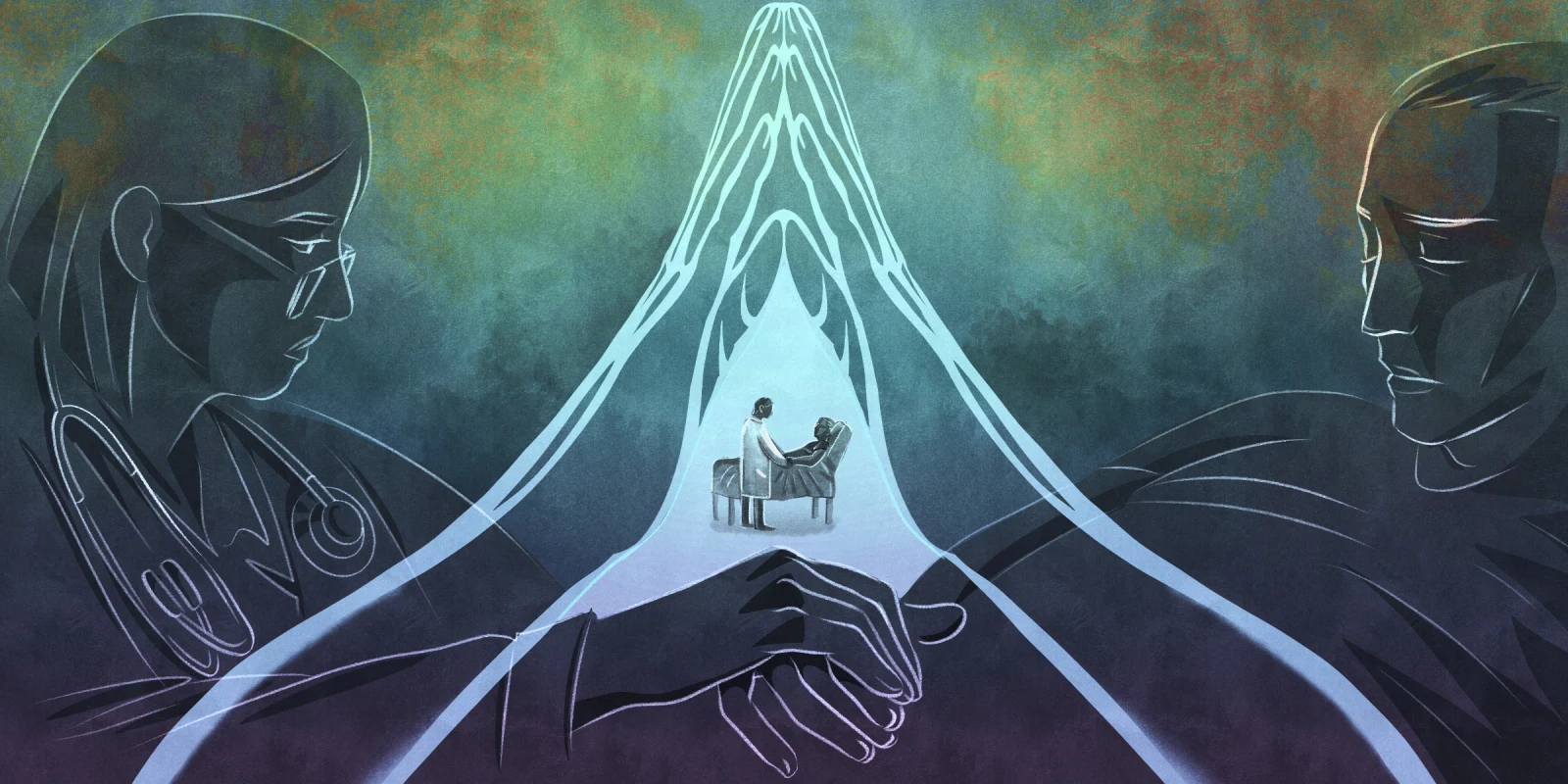When I was 11 years old, we welcomed two Jehovah’s Witness women to my childhood apartment to lead a Bible study for a couple of years. My family was going through some difficult times financially, and my mother had nostalgia for the days when she first came to Columbus, Ohio and belonged to a Bible study group of entirely immigrant members. She’d found spiritual solidarity and emotional support among this group as she and my dad tried to get their bearings in a new country. This new Bible study seemed to my mother a reasonable alternative to the old one, providing homey and familiar cultural eclecticism. Each session ended with a prayer, which always left us feeling hopeful that Jehovah would instill strength to help us get through our difficulties.
Then one day, the two women stopped coming. I’m not sure if my mom was irked by something they’d said or if they had just moved or became too busy, but I never saw those two Jehovah’s Witnesses again. Fortunately, our prayers were fruitful, and our financial status eventually improved. I made peace with the Witnesses' sudden departure. Life went on as if nothing had happened until the tenth grade, when I heard their name again in my American History class. I learned then that Jehovah’s Witnesses were a commonly persecuted, minority religious group with unique and even controversial beliefs.
One such belief, as I’d eventually witness once I became a physician, is the opposition to receiving blood products. This objection stems from an edict in the New World Translation of the Holy Scriptures: “Only flesh with its soul — its blood — you must not eat” (Genesis 9:4). Still, Jehovah’s Witnesses vary in their opinions about which blood-derived products can be accepted — debate abounds as to whether it’s equally sinful to receive human recombinant erythropoietin as it is to receive packed red blood cells, and as to how long one’s own blood can stay outside the body until it is no longer considered part of the self. For us physicians, these beliefs can often engender ethical quandaries. There are numerous medical situations where patients undergo the risk of large blood loss, such as coronary artery bypass grafting, chemotherapy, and, most saliently, surgery. If patients deny the receipt of blood transfusions in those instances, the treatments may provide more harm than benefit because some degree of resuscitation will likely be needed.
A more well-known controversy among the general public is that the Jehovah’s Witness religion considers LGBTQ sexuality and identity to be a sin. As a result, followers who may be LGBTQ may experience psychological distress, such as self-criticism, low self-esteem, and feelings of isolation, when trying to reconcile their religion with their identity. For those experiencing this distress, there are barriers to receiving thorough mental health care for fear of “disfellowshipping,” or shunning, when expressing candid sentiments about restricted topics. If a physician is in a privileged position to hear about these internal conflicts, it is our duty to validate and empathize with the patient, for they are entrusting us to safeguard these thoughts and provide a safe space. But in efforts to maintain professionalism, we should also recognize that this is not a universal experience among all who practice the religion.
Furthermore, this professionalism should extend to patients even when they are not struggling — i.e., when they are vocal about religious beliefs or actions that deeply contradict our core values as physicians, clinicians, or humans. In these instances, we should be mindful of how these patients affect us emotionally, and remember our duty to provide equitable care, which will be more difficult with this type of patient. And when it is no longer possible for us to be professional or provide equitable care, we must refer them to someone who can.
After all, even religions and religious practices which we may find objectionable or controversial can often be a source of strength for our ill patients. When I was a medical student on my hospital medicine rotation, I treated a patient who identified as a Jehovah’s Witness and who had end-stage renal disease. She refused to accept packed red blood cells when she was anemic, but she did consent to human recombinant erythropoietin after discussion with her church leaders — all of whom visited her while she was at the hospital. The patient expressed to me that she felt as if her religious community had rallied with her during her time of need. I can relate to this — although I do not consider myself a Jehovah’s Witness today, I remember the comfort provided by the routine and presence of the church members who cared about us.
When physicians identify with or treat stigmatized, marginalized, and vulnerable minority groups, the key lesson is not to assume that we already know about our patients’ experiences, but rather to be open-minded and professional when we enter a patient’s room. One way to do this is simply to ask during a visit: “What role do your religious beliefs play in your treatment?” As I well know, religion can be a solace or a source of anguish for patients, and often plays a large part in a patient’s well-being. Thus, it is important to tease out this relationship as it can affect the healing trajectory and encourage trust amongst our patients. Whether directed at the Jehovah’s Witness or the agnostic, our sense of healthy curiosity about our patients’ religious lives can be one way of keeping health care patient-centered.
As a clinician, how do your approach religion in the medical setting? Share your opinions in the comments below!
Katherine Wu, MD, MA, is a preliminary medicine resident who is interested in applying to psychiatry next year. She is passionate about women's mental health, cultural humility in health care, and addiction medicine. In her free time, she likes to tend to her plants, read books, learn about Chinese culture, and stay physically active. Dr. Wu is a 2021–2022 Doximity Op-Med Fellow.
Illustration by April Brust







